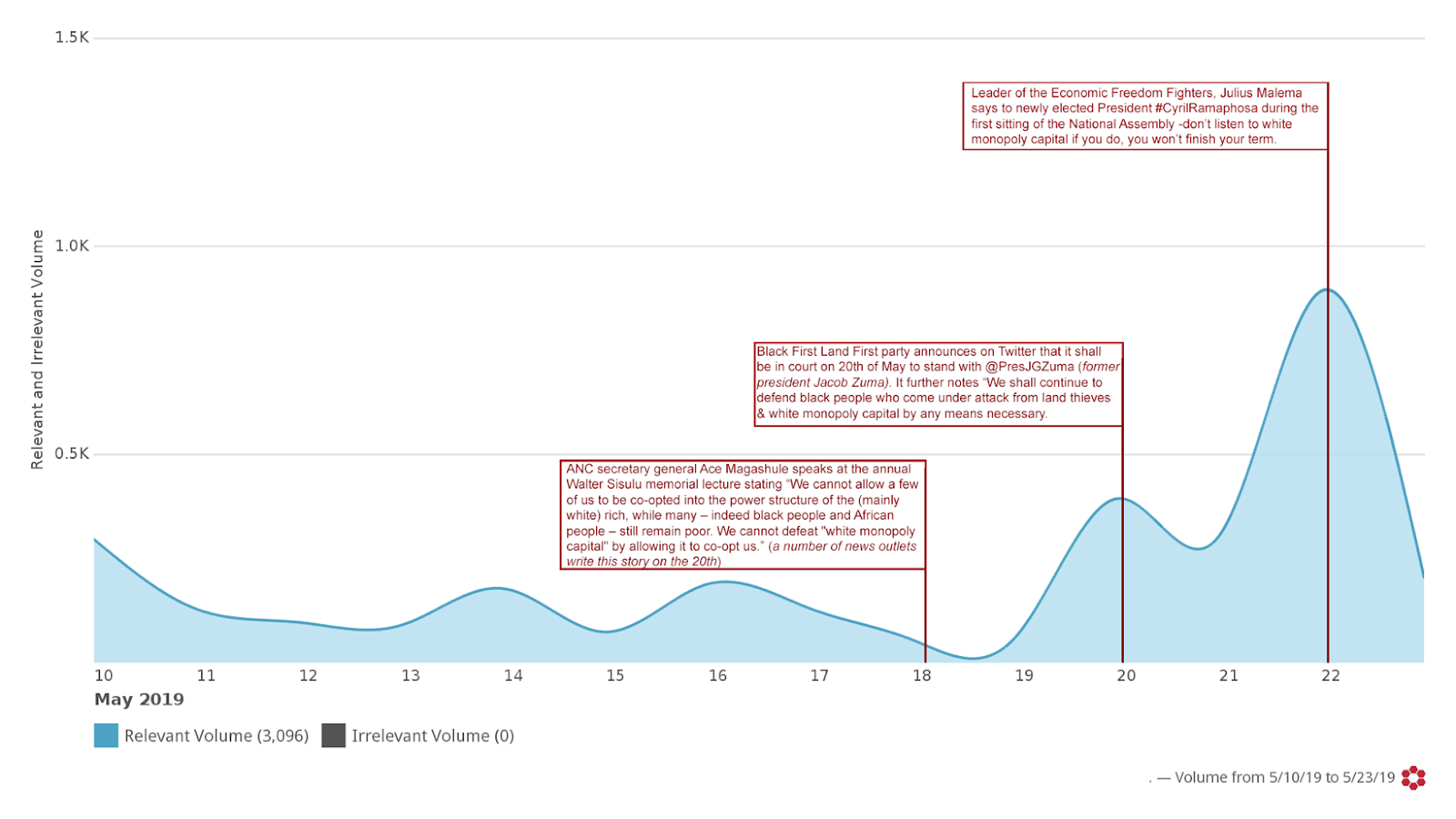Monitoring and Analysis of Hateful Language in South Africa: A Fourth Deep Dive
White Monopoly Capital
While the phrase “White monopoly capital(ists)” became prominent on South African social media in 2016 to allegedly benefit corrupt businessmen around President Zuma, today it’s frequently used by politicians offline to broadly target white business people. It reflects a local frustration implying white business people are unwilling to share wealth with a broader group. While there may be white capitalists enriching themselves at the expense of others, the phrase is not always used to imply this, and its context determines its importance.
It could be deemed offensive and inflammatory when used to rally or divide people racially, but it’s not hate speech when used to describe South Africa’s existing economic structure. This multifaceted characteristic makes the term problematic when politicians use it without defining specifically what they mean.
During our monitoring period, the use of the term increased significantly on social media when used by politicians both online and off. At a public lecture, ANC Secretary General, Ace Magashule, painted white monopoly capitalism as a power structure to be dismantled in order to economically liberate the black African. Julius Malema, however, leader of the EFF, views it as a powerful tool to influence the president’s office. He issued a warning to the president that if he listens to white monopoly capital, the president won’t finish his term.
The K-Word
Kaffir is a derogatory term for a black African. Under Crimen Injuria - South African common law - the term is considered hate speech and is punishable under the justice system. Despite this, the term has surfaced throughout our monitoring process.
During this period, rise of the term was triggered by events such as Hellen Zille’s tweet on “black privilege” from an online debate stating: “Well you clearly don't understand black privilege. It is being able to loot a country and steal hundreds of billions and get re-elected. If ppl want permanent poverty for the masses they are going about it the right way."
This resulted in another user responding: “Just call us Kafirs and be done already.”
While such online discourse can quickly turn hateful, another tweet told how South Africans need to discuss how the Indian community uses the K-word more often than the white one when referring to black employees. The attention this tweet garnered suggests frequent use of the term in offline spaces.


